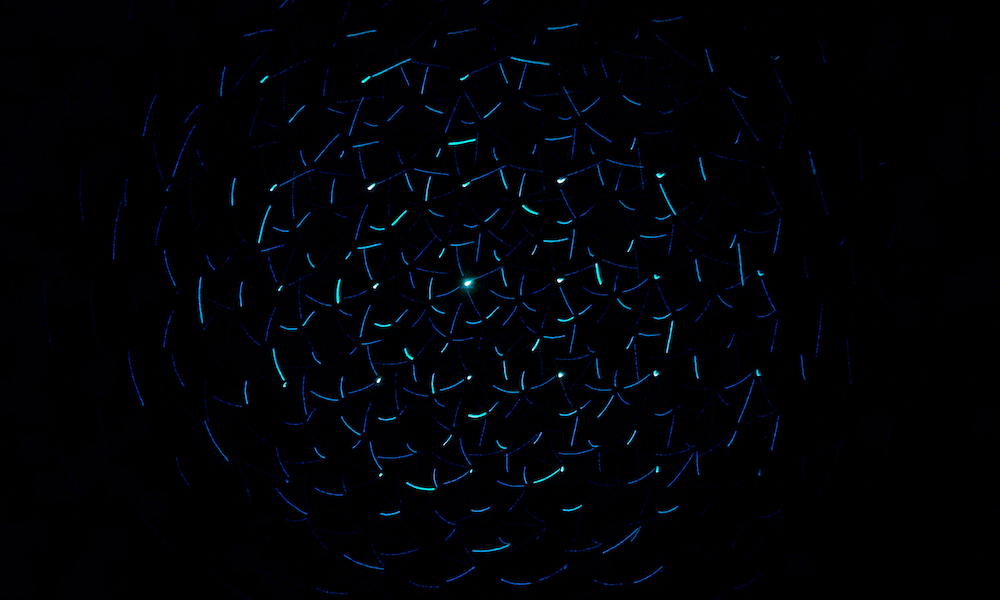Editorial: Improving Our Scientific Understanding of Consumer Behavior
“The Journal of Consumer Research is an anomaly in the ‘house of intellect’. Its primary objective is to serve as an interdisciplinary communication vehicle for theory, empirical research and methodology of the study of consumer behavior.
…
It is our objective to be the first journal in which professionals sharing an interest in consumer behavior across disciplines send their material.
…
JCR is intended to be a medium for interdisciplinary exchange over an exceedingly broad range of topics, the common denominator of which is their relationship to the study of consumer behavior.”
– Ronald Frank, 1974 (inaugural JCR editorial)
The Journal of Consumer Research (JCR) was founded on a unique premise: to serve as the place where scholars from across academic disciplines and research perspectives share scientific knowledge about consumers and about the study of consumer behavior. Now, 50 years later, we see JCR as more than ever playing that crucial role, as the source of a broad range of high-quality research on key questions from a diverse set of researchers and perspectives with the shared goal to improve our scientific understanding of consumer behavior.
We thank the previous editor team for their stewardship of the thriving journal that we are being entrusted with. Our mission as editors over the next four years will be to identify, develop and promote research that improves scientific knowledge of consumers, serving the research community as well as practitioners, policy makers and the public. Simply put, this means that the reader’s stock of accurate knowledge should be improved by the content of the journal. We have been entrusted with the responsibility to evaluate which papers could have that effect and to help papers efficiently develop in a way that realizes that potential.
The focus in academic research is often on an expansionary approach to scientific understanding: advancing our knowledge by developing new theories, new constructs, new practices or identifying new topics. As valuable as that is, improving scientific knowledge also happens in other ways. We can deepen our understanding – building on existing knowledge to make it more complete or more accurate. Developing more precise or falsifiable theories, questioning assumptions, assessing validity, robustness or generalizability, and identifying boundary conditions are all ways in which we can improve the accuracy, richness, and often the practical applicability and prescriptive potential, of what we know. Sometimes, improvements in scientific understanding come from revising what we thought we knew – including updating our knowledge by pruning theories of the branches that didn’t bear fruit, recognizing when prior empirical evidence can no longer be relied on as the basis of knowledge, and upgrading our methodological approaches to advance beyond those that have not proven to be informative.
Our approach for JCR to foster the improvement of scientific understanding can be summarized in terms of three key priorities for our editorial term: facilitating a broad range of research contributions, advancing the informativeness of JCR research, and promoting intellectual humility.
BREADTH OF RESEARCH CONTRIBUTIONS
We want JCR to be home to a broad interdisciplinary and cross-disciplinary range of consumer research. Echoing the prior editorial team, we believe that there is no one formula for writing a successful JCR paper and we are not looking for formulaic research. We plan to continue and expand on the prior team’s efforts to promote evaluation of research from a range of disciplinary and methodological approaches, in line with the unique goals of each type of research. We are looking to publish papers from a broad range of academic disciplinary perspectives, from researchers with a diversity of interests, viewpoints, backgrounds, and lived experiences, conducting research in different contexts and on a wide range of consumer-relevant topics, using those methods that are best suited to improving knowledge on the topic of interest.
The field of consumer research is constantly changing and evolving, perhaps now more so than ever, and we want JCR to facilitate that evolution. We have a terrific team of associate editors (AEs) and Editorial Review Board members who we believe capture the current breadth and evolving new directions of the field and will be excited to see new ideas, topics and approaches in the journal. We will work with the review teams to make sure that the evaluation and feedback at JCR is not based on narrow one-size-fits-all standards or heuristics, but instead assesses each paper in the context of the unique intended contribution of that research.
While we take a broad view of consumer research, JCR is not a journal about everything. The “anomalous” premise of JCR that Frank referred to in his inaugural editorial is that there is a unique value in focusing on consumer behavior as one specific and fundamental aspect of the human experience. Relevance to consumer behavior doesn’t require calling the people we study consumers or having marketing-relevant stimuli or investigating specific marketing practices. We think of consumer relevance in broad terms, as something that is revealed by the degree and meaningfulness of a paper’s connections to the interests, ideas and knowledge of consumer behavior researchers, and therefore as something that is evolving with the field. For some papers, pushing the boundaries of what is currently considered consumer behavior may in fact be part of the intended contribution. That said, the less self-evident the consumer relevance, the more important it will be for the paper to communicate why, at a fundamental level, answering its research question is important for improving our scientific understanding of consumer behavior as a distinct component of the human experience.
INFORMATIVENESS
The way that JCR can best contribute to improving our scientific understanding of consumers is by publishing the most informative research on important and relevant questions. To be highly informative, it is necessary for research to have high validity and credibility. Different aspects of validity (including fidelity of theorizing, logical reasoning, measurement validity and analytic practices, causal inference and others) will be central for different kinds of research. The overarching goal, however, is a shared one – that the conclusions follow from accurate (and accurately communicated) evidence. We don’t see this as achievable by imposing one way of doing research or through across-the-board requirements — there are many different tools that can contribute to this goal. How validity is best ensured depends on the specific goals and methods of the paper.
In our view, credibility of research lies in accuracy and transparency, not perfection. Social science is inherently complex and noisy, and no program of research yields unambiguous evidence. Instead, we want JCR papers to give the field ideas and evidence worth talking and thinking further about, offering up something that readers of the journal will productively engage with. We will give full consideration to papers that are not “bullet-proof” but that encourage worthwhile engagement in a promising direction, as long as the limitations and gaps are clearly outlined.
This is a time of transition in social science, requiring us to reconsider not only our research practices, but also the criteria by which we evaluate research. In some areas, the very definition of a research paper is changing, from a traditional view of instructing the reader about the knowledge acquired by the authors, to now something more collaborative, providing a set of practices and evidence that the authors guide the reader through, presenting their conclusions and interpretation, but also inviting the reader to form their own. Where applicable, we would like JCR to help facilitate this transition. During our editorship, we will track these developments and give guidance, within the review process, in our communications about evolving norms and best practices (including in subsequent editorials or on consumerresearch.com) and, when applicable, by publishing methodological work that is of high quality and relevant to the effective practice of consumer research.
Research that improves scientific understanding needs to transcend the particulars of what the authors have done in their research to change the reader’s broader understanding of a question. While we expect that most JCR papers will have a deep engagement with theory, there are many different ways to do so, depending on the goals of the paper. Consumer culture theory (CCT) research in JCR, for example, addresses consumer behavior phenomena in their socio-cultural context, rather than being representative of a particular population. The focus of such research is on exploring consumer research in depth rather than being widely generalizable, and looks to advance theory, as well as to be generative of future scholarship.
In general, theory is our bridge from evidence to knowledge, from specific research findings to what the field can learn from those findings. Beyond developing new theory, papers may instead expand or revise existing theories, test between theories, identify gaps or contradictions in theories, test the practical implications of theories or use real world phenomena to challenge the assumptions or scope of existing theories, or use other approaches. We are open to many different means of making a theoretical contribution.
Consumer research is a cross-disciplinary field that is grounded in the concreteness of consumers’ behaviors and experiences. For some consumer research papers, the primary intention is to improve our practical substantive knowledge. While still situated in relevant theories, the focus of these papers is often to build a different bridge, from what was learned about the specific context studied to the more general substantive knowledge conveyed to the reader. While the goals of breadth of knowledge are the same, the methods and criteria will be different, focusing on issues of realism, potential for heterogeneity and evaluating credibility, trustworthiness, and/or generalizability. Regardless of the approach taken, making a compelling case for how the research will be informative and improve scientific understanding is crucial to success at JCR.
INTELLECTUAL HUMILITY
JCR has largely achieved the goal Frank set out, to be a “first journal” for cross-disciplinary consumer behavior research, with high standards for what it publishes. We are looking for the best work on consumer behavior — research that is ambitious in the scope of intended contribution and highly convincing in the answers provided. This often requires going beyond what has been done before, in idea generation, theorizing or empirical evidence. In our shared mission to achieve, however, we can lose our grounding, and lose sight of intellectual humility, one of the most important values enabling us to truly improve our knowledge and understanding.
For authors, intellectual humility facilitates well-calibrated communication and interpretation. This means not over-differentiating one’s work for perceived novelty, overclaiming on the results or overselling the contribution or implications. Instead, authors should acknowledge areas of overlap with prior research, integrate with existing theoretical frameworks, openly discuss limitations, explore the constraints on generalizability, and be thoughtful about which practical implications are actually realistic in the real world. Of course, this requires authors to trust that writing intellectually humble papers will have positive consequences, enabling the review team to have a more accurate and credible understanding of the potential contribution. Authors could worry that doing so themselves could instead disadvantage their work in the review process.
Intellectual humility needs to be a shared value. We view peer review as a collaborative exercise. Effective research contributions are relevant and useful to our fellow scholars, and each researcher knows some things that others don’t. JCR reaches out to peer researchers as reviewers to generate information about papers and to especially experienced peers as AEs to synthesize that information and provide a holistic and actionable assessment of the potential. Intellectual humility of the review team is critical, including being careful not to present opinions as facts, acknowledging the potential to be wrong when seeing things differently than the authors and having realistic expectations of what is achievable in a revision. Above all, intellectual humility means respecting the goals of the authors and the intended contribution of the research, evaluating the work on those terms. While authors will sometimes be disappointed with the ultimate outcome, our goal is that the review process at JCR be respectful, evidence-based, constructive and informative for the authors and it is our responsibility as editors to reinforce norms and guide those conversations as needed.
As a field, intellectual humility involves recognizing that successful papers will generally contribute to a broader conversation, rather than providing the last word. This highlights the importance of fostering ways to continue conversations after publication. Some of that conversation will constitute sufficient contribution to be a traditional follow-up paper in JCR or in other journals. However, at times, more critical conversations may not have been welcomed in the academic discourse, instead happening in informal ways. In our view, the field benefits from well-founded criticism being introduced, evaluated and debated, and communicated in the journal. We intend to foster constructive, fact-based and peer-reviewed criticism, re-evaluation and debate within the journal.
Finally, we want to do our own part to practice intellectual humility in the context of the journal itself. Personally, we have all had papers of our own rejected from the journal over the years, and we appreciate that many of the papers that we decide not to publish in JCR should and will do well elsewhere. Despite our best intentions to promote an objective and fact-based review process, there is an inherent subjectivity in all editorial decisions. As a journal, JCR’s role is to promote productive learning and conversations in the field and help shine a light on important research, and we have to rely on our judgment in doing so. There will be some great research that we will decline to publish, and when we do decide to decline to publish, we will do so respectfully and having made our best effort, as an entire review team, to provide useful (objective, actionable and constructive) feedback to authors to help them in their research agenda.
Perhaps most importantly, we will work to be respectful of the authors’ research goals, and mindful not to waste the authors’ resources, either in data collection or in rounds under review. We appreciate the need for more consideration of efficiency and feasibility in the review process. When we reject a paper, we intend to be decisive and do so early in the process, with constructive feedback and without having compelled authors to do unnecessary work on the paper across multiple rounds. When we accept a paper, we will try do so in a timely manner, identifying only the changes that are most necessary for achieving the intended contribution, while maintaining high standards of validity, credibility and informativeness. Inevitably, there will be some “diamond in the rough” papers that offer important ideas that require substantial additional development (which may or may not succeed), but we want these to be the exception not the rule. We hope that authors will submit papers in their most fully developed, thorough and complete form, and we pledge not to waste the authors’ and the review team’s time with unnecessary rounds of review. There are other great journals to send your work to, and if we can’t efficiently get to a version of the paper that works at JCR, we want to give it back to the authors, so that they have ownership of the direction in which to take the paper next.
We appreciate and take very seriously the trust the field has placed in us, the potential we have to help the field evolve in a positive direction and both the importance and the difficulty of living up to the ideals we have outlined in this editorial. We hope that you will join us, as authors, reviewers, AEs, and readers of JCR papers, in working together on this next step for the journal, in the ongoing goal for JCR to uniquely contribute to the “house of intellect”. Together with you, over the next four years, we hope to shore up the foundations in some places, renovate some rooms, develop finishing details on other areas where construction has been underway, and start building entire new rooms.
Oleg Urminsky
Giana M. Eckhardt
Jacob Goldenberg
Margaret G. Meloy
Stephen A. Spiller




